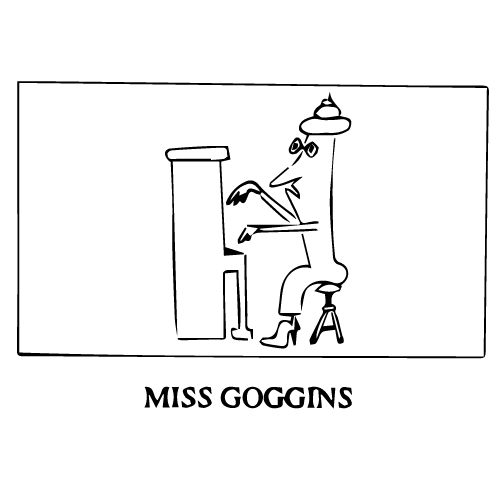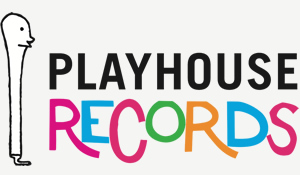On the Excellence of Jim Copp

by Henry Kaiser
I remember first listening to JIM COPP TALES around 1958 when I was six years old . During play, my friends and I often imitated the voices of Copp's outrageous characters. Somehow that LP and several other Jim Copp/Ed Brown albums survived in my record collection for the next twenty years. Occasionally I'd pull them out and play them. Each time I would find new levels of enjoyment.
In the early eighties, I discovered new copies of all nine of Copp's children's albums in a record store. A quick check with the store's distributor led to the surprising discovery that Copp's record company was still in business. By this time in my life, the music production business was something that I knew well. I had become a well-known guitarist and record producer with about 100 LPs in my own discography. I had also worked in radio and film. My own experience in music and media had prepared me to fully appreciate Jim Copp's unsung genius as an artist working in the peculiar idiom of children's records.
When I listen to these recordings from my adult professional perspective, I realize that beyond their sentimental value and the hours of great entertainment I drew from them as a child, this is the work of an American original operating in a highly personal creative universe, comparable to such unique and diverse voices as Preston Sturges, Ken Nordine, Sun Ra, Max Fleischer, Dr. Seuss, Orson Welles, Raymond Scott, Matt Groening, or Daniel Pinkwater. Jim Copp has a sense of vocal and dramatic timing that equals Jack Benny or the Marx Brothers at their best. His lyrics and texts often equal in quality the finest children's, nonsense, and cartoon writers: Lewis Carroll, Ogden Nash, Tex Avery... Copp's success required mastering many modes of creative expression: musician, composer, actor, writer, recording engineer, tape editor and businessman. His skills as a self-taught recording engineer achieved miraculous results with minimal equipment. As a multi - instrumentalist, he created intense end expressive music that crossed idiomatic and stylistic barriers. The more closely I listen to these recordings, the more amazed I become.
When I shared the albums with my adult friends, they were also struck by the complexity and excellence of Copp's vision. Repeated listening raised more and more questions about the realization of these recordings. Full of curiosity, I finally called the Playhouse Records telephone number and was surprised to find myself speaking directly to Jim Copp. I eventually visited Jim at his home in Los Angeles and he answered many of my questions about his work. No, he did not have a multi-track recorder. All of the overdubbing was achieved by "ping-ponging" between mono machines to build up many layers of sound. (The class chorus on "Miss Goggins and the Gorilla", for example: all Mr. Copp.) No, he did not have fancy reverb, equalizers or outboard gear. Ambience and tone were achieved by careful experimentation with microphone placement. (Miss Goggins provides a fine example: listen to the space of the classroom and the movements of the mean teacher as they are defined by sound.) Yes, he was a master tape editor. Jim showed me the master tapes of the LPs. They were composed of thousands and thousands of tiny fragments of tape carefully spliced together. I have seen radio dramas produced with splicing - this was way beyond that - quite like some of the early electronic music composers' and their tape compositions. This was how Jim had accomplished his incredible microsecond timing. (Note the timing and delivery throughout "Cloudy Afternoon".) Yes, he had certainly been aware of what he was doing. Copp had gone to these resourceful and innovative lengths to achieve precisely the results that he had imagined in his mind: a crazy mixture of music, story, song, and drama that wholly transcends anything else that I have ever heard produced as audio entertainment for children. Certainly for adults these works are also enjoyable on many levels. As I look over my own creative output of the last two decades, I note that his work definitely made some kind of formative mark on my own expressive personality when I was a small child. When I was six or seven, I learned a lot about timing, music, sound and storytelling from Jim Copp.
America has a long tradition of great and long-forgotten geniuses. For the last ten years, I have carefully protected my Playhouse LPs and I have shared them and the story behind them with many amazed friends. I can cheer with happiness now that this work is available on CD for future generations to enjoy and for others to discover the genius of Jim Copp.
Widely recognized as one of the most creative and innovative guitarists, improvisers, and keyboardists in the fields of rock, jazz, and experimental music, California-based musician Henry Kaiser is perhaps best known for his WORLD OUT OF TIME Madagascar recordings made with his colleague, David Lindley.
All contents © 2012 Playhouse Records
All Rights Reserved Worldwide
No portion of this website shall be reused without proper permission
